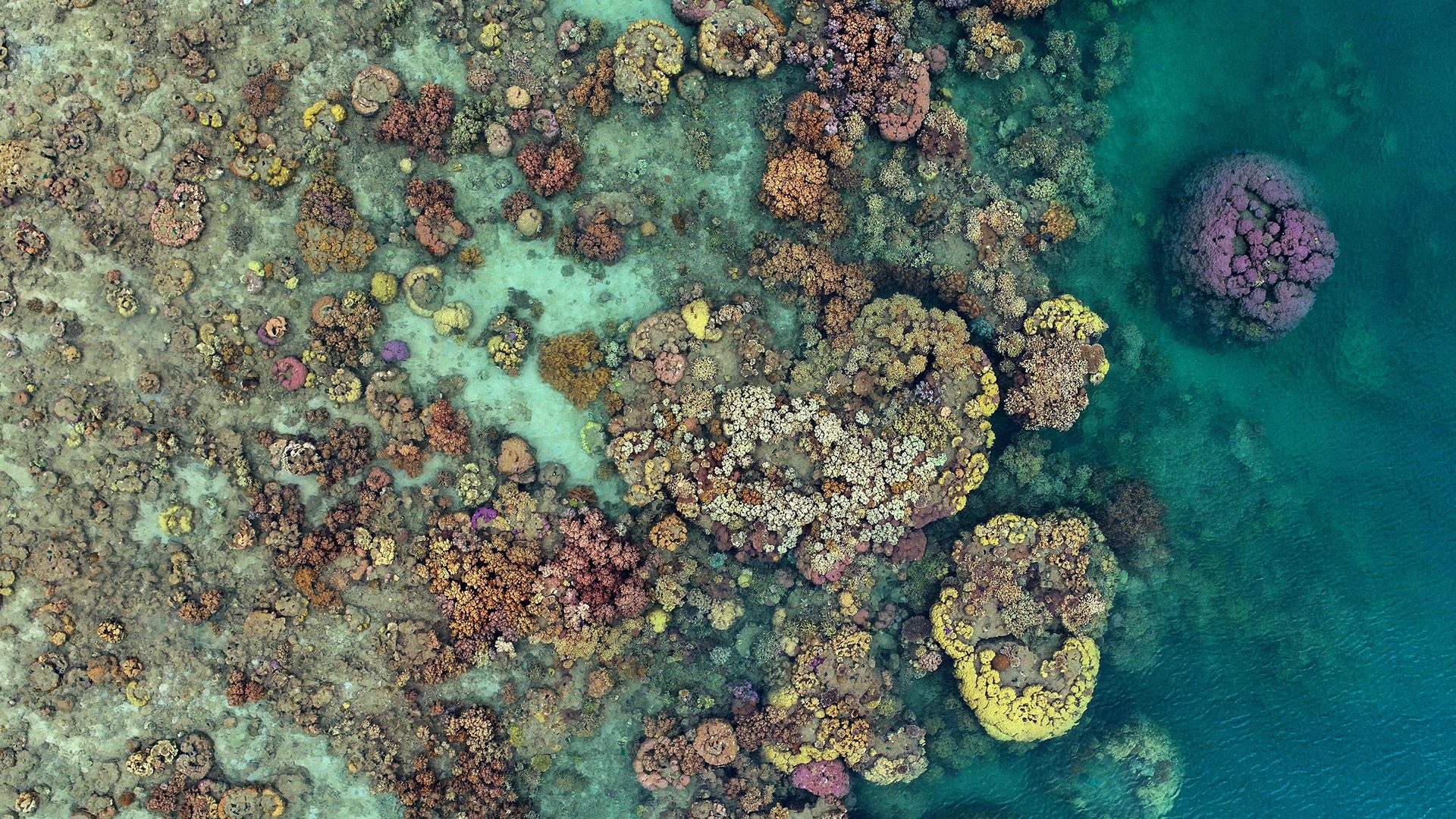Woodznutz
Platinum Member
- Dec 9, 2021
- 18,380
- 8,680
- 473
Maybe, but we're still proceeding towards doomsday.What ever happened to The Great Barrier reefs dying bullshit?
Oh thats right they've been coming back like gangbusters.

Follow along with the video below to see how to install our site as a web app on your home screen.

Note: This feature currently requires accessing the site using the built-in Safari browser.
Maybe, but we're still proceeding towards doomsday.What ever happened to The Great Barrier reefs dying bullshit?
Oh thats right they've been coming back like gangbusters.

What ever happened to The Great Barrier reefs dying bullshit?
Oh thats right they've been coming back like gangbusters.


Is the Great Barrier Reef making a comeback?
The world's largest reef saw record growth after years of bleaching, but it's not out of the woods yetwww.whoi.edu
Read this and correct yourself.
That is your picture, isn't it.LOL....Never been bleached before.
You think Woods Hole Oceanographic Institution is a biased source? Yet you provide no source to your presumably quoted comment.From a biased source.
This is the actual truth.
In 2022, the Australian Institute of Marine Science (AIMS) reported the highest levels of coral cover across two-thirds of the Great Barrier Reef (GBR) in over 36 years. After recent massive bleaching events impacted nearly 90% of Australia's corals, it seems that anyone could see this news as a victory.Feb 15, 2023
You think Woods Hole Oceanographic Institution is a biased source? Yet you provide no source to your presumably quoted comment.
Do you actually think MIT has a problem getting funded?Yep...
They'll say anything to get more funding.
Do you actually think MIT has a problem getting funded?
Where's your link? Why do AGW deniers seem to have such a problem with links?Probably not considering how much they now charge these days.
If the dems hadnt gotten into the school loan business it'd be much cheaper.
But I'll take the word of Australian Institute of Marine Science.
Australian Institute of Marine Science website is at: AIMS.gov.auProbably not considering how much they now charge these days.
If the dems hadnt gotten into the school loan business it'd be much cheaper.
But I'll take the word of Australian Institute of Marine Science.

Where's your link? Why do AGW deniers seem to have such a problem with links?
Where's your link? Why do AGW deniers seem to have such a problem with links?
2021-2022? I have newer data from them in the post above.I just like to hear you whine about links.
It's pretty obvious where my info came from,in fact all you had to do is type in a few words.
2021-2022? I have newer data from them in the post above.


Did you not see post #31 of mine wherein I quoted extensively from the Australian Institute of Marine Science and the Great Barrier Reef Marine Park Authority talking about the effects of global warming on the reef including a reef health update from April of this year?So you're trying to tell me that 36 years of progress just suddenly went south?
I think I'll listen to the actual Australians that study the Great Barrier Reefs on a daily basis.
You and Biden need to pop up your parasols to block the sun. The sky is falling, the sky is falling. The earth has experienced warming and cooling cycles numerous times in its history and will continue to do so regardless of what you or Biden do about it, so don't get your panties in a wad.
That's JUST the sort of educational stratigery that produces a paragon of intellectuicity such as yourself.I'm not going to read anything that claims it's glowbull warming.
Everyone knows the earth goes through hot and cold cycles.
Glad you're able to laugh at yourself like that. That's a good thing to do now and then.Did you not see post #31 of mine wherein I quoted extensively from the Australian Institute of Marine Science and the Great Barrier Reef Marine Park Authority talking about the effects of global warming on the reef including a reef health update from April of this year?
That's JUST the sort of educational stratigery that produces a paragon of intellectuicity such as yourself.
When did I ever say anything like that? The topic of this thread (mine, btw) is high SSTs harming Florida coral reefs. That seems to have shifted to the Great Barrier Reef where you tried to claim that WHOI was unreliable and that the Aussies had found their reefs doing just fine with all that hot water. I showed that to be completely incorrect using YOUR reference sources. That doesn't actually seem like the work of an idiot to me. And, as I just told someone else earlier today, misquoting someone is a no-no on this website.So you're trying to tell me the earth doesnt go through heating and cooling stages?
You sir are an idiot.